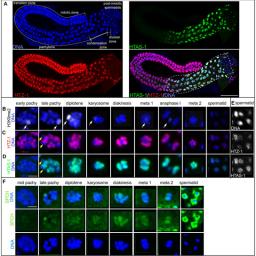Edward Mendelson over at the NYT writes:Auden's contrast between mediocrity that gets things right and genius that is always wrong is useful in thinking about many fields other than politics. Take, for example, the instruments used for writing. The word processor that most of the world uses every day, Microsoft Word, is a work of genius that's almost always wrong as an instrument for writing prose. Almost-forgotten WordPerfect-once the most popular word-processing program, still used in a few law offices and government agencies, and here and there by some writers who remain loyal to it-is a mediocrity that's almost always right.
Good look at the quirks of the modern office's favorite bit of software from a more philosophical point of view. It starts with a quote from Plato, for starters.

Gmail is the email solution of choice for a huge number of Netizens, and that provides a rich playing field for developers hoping to be useful to you by providing tools that simplify email overflow.
Enter Google with its latest endeavor, "Inbox." From Engadget:
If you're anything like us, Google's Gmail has an iron grip on your life. Google's looking to create a whole new iron grip with a new app from its Gmail team, and it's called "Inbox." What is it? That's a good question -- Google's made a demo slash advertisement video that we've dropped below. As far as we can tell, Inbox is a combination of Google Now and your Gmail inbox -- a "smart" inbox, if you will. It combines alike pieces of email (bank invoices, for example), highlights related information (like Google Now alerting you to flight changes, traffic, etc.) and keeps track of your life (it'll give you reminders, among other heads ups). Is this the end of Gmail? We seriously doubt it, but it is Google's latest foray into simplifying email.

Around 800,000 years ago, magnetic north hovered over Antarctica and the geographic north pole was magnetic south. The poles have flipped several times throughout Earth's history. Scientists have estimated that a flip cycle starts with the magnetic field weakening over the span of a few thousand years, then the poles flip and the field springs back up to full strength again. However, a new study shows that the last time the Earth's poles flipped,
it only took 100 years for the reversal to happen.
The Earth's magnetic field is in a weakening stage right now. Data collected this summer by a European Space Agency (ESA) satellite suggests the field is weakening 10 times faster than scientists originally thought. They predicted a flip could come within the next couple thousand years. It turns out that might be a very liberal estimate, scientists now say.
A weakening magnetic field could interrupt power grids and radio communication, and douse the planet in unusually high levels of radiation. While a pole flip could cause a few technical issues, there's no need to panic. Scientists have combed the geological timeline for any evidence of catastrophes that might be related to a magnetic flip; they haven't found any. No direct evidence of past catastrophes triggered by a magnetic flip.

Following up on last week's
article about offspring and mothers' previous sexual partners (in insects, anyway), new research now sheds some additional light on the multi-layered process of how a sperm and egg pass along information needed for successful reproduction.
As described in an article published in the journal PLOS Genetics:
Though one layer is the DNA code that is transferred, the new study identifies information not encoded by DNA, a so-called "epigenetic" layer of information that helps the cell interpret the genetic code.
In insects this additional "epigenetic" layer of information apparently can come from a previous mate. The question if such or similar mechanisms can also exist in higher organisms, e.g. also in humans, might be far fetched, but not that far, that it precludes a more thorough research. Clearly, there are still plenty of unknown factors in human and non-human reproduction: an area ripe for further research.

Mimas, one of Saturn's smaller satellites, may seem a little dull... An icy moon that's just 246 miles wide and whose most distinctive feature is the 88-mile-wide Herschel crater - a giant Cyclops-like indentation that makes the moon resemble the planet-obliterating superweapon from "Star Wars" that's known as the Death Star. But the moon
may hold a special secret of its own. A stronger than expected rotational wobble points to one of two intriguing scenarios: Mimas either has an irregularly shaped core or has an ocean buried underneath its icy surface. "Something else has to be going on inside." The findings, described in the journal Science, shed new light on a mysterious but often-overlooked moon that could hold clues to its early formation.
Other scientists say it's unlikely Mimas has such an interesting interior and think
the wobble can be explained more simply. One problem is that Mimas's ancient, heavily cratered surface shows no signs that water has ever touched it-unlike, say, the freshly Zamboni-ed ice skating rink of Europa. That same result could be achieved with irregular gradations in the density of rock, ice, and pore space. The detected wobble could also have been knocked into existence by something that has nothing to do with the moon's interior: a comet impact.
Many of the millions of comments in the net neutrality proceeding, urge the FCC to impose net neutrality rules by regulating the Internet "like a utility." It won't work. Simply reclassifying ISPs as (Title II) common carriers will trigger a vast flood of litigation, but bring little relief to consumers who simply want unfettered access to the Internet. We can't find a way to write a net neutrality rule in a manageable number of words, and still leave only minimal discretion to the ISP. An ISP with a good lawyer - and they all have good lawyers - could plausibly argue that the rule allows almost any activity at all.
There is a way to solve this problem: a rule that requires the ISP to open its channels (cable or phone line or fiber) to competing ISPs. Under this approach, a consumer dissatisfied with the performance of one ISP could easily switch to another with no change to the household wiring - an impossibility in today's system. We know this approach works because it did work, very well, all through the Internet's dial-up days. A set of FCC rules called Computer III required just the kind of shared access to those lines that we propose here. That is the only practical way to bring about net neutrality.
In the early 2000s, following the advent of broadband, the FCC made a colossal two-part error. First, it declined to apply Title II and Computer III shared access requirements to cable broadband delivery. Second, a few years later, it
removed those same existing requirements from telephone company DSL broadband. The result today is Internet monopolies, or duopolies at best, in nearly every U.S. market.
http://www.commlawblog.com/2014/10/articles/internet/regulating-the-internet-like-a-utility-wont-yield-an-open-internet-unless-/Electrical engineers at the Technische Universitit Mi1/4nchen (TUM) have demonstrated a new kind of building block for digital integrated circuits. Their experiments show that future computer chips could be based on
three-dimensional arrangements of nanometer-scale magnets instead of transistors. As the main enabling technology of the semiconductor industry - CMOS fabrication of silicon chips - approaches fundamental limits, the TUM researchers and collaborators at the University of Notre Dame are exploring "magnetic computing" as an alternative.
Think of the way ordinary bar magnets behave when you bring them near each other, with opposite poles attracting and like poles repelling each other. Now imagine bringing several bar magnets together and holding all but one in a fixed position. Their magnetic fields can be thought of as being coupled into one, and the "north-south" polarity of the magnet that is free to flip will be determined by the orientation of the majority of fixed magnets. Gates made from field-coupled nanomagnets work in an analogous way, with the reversal of polarity representing a switch between Boolean logic states, the binary digits 1 and 0.
The grumbles over systemd and its ramifications are well known and have even been discussed on Pipedot [links below]. But it's taken on a new urgency. The members of the Debian community are set to vote on an init system, and if by any chance the "give preference to systemd" option wins,
this group of angry sysadmins is organized, willing, and prepared to fork Debian. Their argument is measured and calm, but they've got their finger on the trigger. Here is just a portion of their argument.
Who are you?!
We are Veteran Unix Admins and we are concerned about what is happening to Debian GNU/Linux to the point of considering a fork of the project.
And why would you do that?
Some of us are upstream developers, some professional sysadmins: we are all concerned peers interacting with Debian and derivatives on a daily basis.We don't want to be forced to use systemd in substitution to the traditional UNIX sysvinit init, because systemd betrays the UNIX philosophy. We contemplate adopting more recent alternatives to sysvinit, but not those undermining the basic design principles of "do one thing and do it well" with a complex collection of dozens of tightly coupled binaries and opaque logs.
Are there better solutions than forking?
Yes: vote Ian Jackson's proposal to preserve freedom of choice of init systems. Then make sure sysvinit stays the default for now, systemd can be optional. Debian leaders can go on evaluating more init systems, just not impose one that ignores the needs of most of its users.
Why is this happening in your opinion?
The current leadership of the project is heavily influenced by GNOME developers and too much inclined to consider desktop needs as crucial to the project, despite the fact that the majority of Debian users are tech-savvy system administrators.
Can you articulate your critique to systemd?
To paraphrase Eric S. Raymond on the issue, we see systemd being very prone to mission creep and bloat and likely to turn into a nasty hairball over the longer term. We like controlling the startup of the system with shell scripts that are readable, because readability grants a certain level of power and consciousness for those among us who are literate, and we believe that centralizing control services, sockets, devices, mounts, etc., all within one daemon is a slap in the face of the UNIX philosophy.
Also see:
Kernel hacker's rant about systemdBoycott Systemd movement takes shapeUselessd, an alternative to systemdDebian to vote on init system again
Hawaii's Kilauea lava flow that began in June
appears to have stalled, after slowing for more than a month. Coincidentally, just in time for residents of the islands to prepare to be hit by tropical storm Ana. The lava flow did relatively little damage, destroying roads but leaving threatened communities relatively unscathed. But active volcanoes are unpredictable, and the flow could resume at any time.
With that, we take a look back on ways that people have tried, and often failed,
to contain or divert lava flows. From George S Patton ordering bombing runs on Hawaii's Mauna Loa in 1935, to spraying 6.8 billion liters of water on Iceland's Eldfell lava flow over a five month period, dismissively called "peeing on the lava". The US Geological Survey suggests that the Iceland (and Etna) diversion "may not have succeeded had their respective eruptions continued".
If Ana's winds increase to hurricane-force, it could become the first hurricane to make landfall on the islands in the past 22 years, illustrating
Hawaii's peculiar immunity to hurricanes that scientists have been left to speculate about for decades. The island of Kauai being the notable exception.
Ian Jackson is at it again.
A
proposal has been submitted in the Debian vote mailing list to ensure that the next version of Debian, Jessie, will not require any specific init system. This comes after the Debian technical committee (TC) already decided in February to adopt systemd as the default init system for Jessie. The TC had left the door open for a general resolution to decide whether other init systems would be supported in Jessie. At this time, it appears that enough support has been garnered for the proposal to ensure that there will be a vote on this issue. From the text of the proposal:
This GR seeks to preserve the freedom of our users now to select an init system of their choice, and the project's freedom to select a different init system in the future. It will avoid Debian becoming accidentally locked in to a particular init system (for example, because so much unrelated software has ended up depending on a particular init system that the burden of effort required to change init system becomes too great). A number of init systems exist, and it is clear that there is not yet broad consensus as to what the best init system might look like.
When the TC debated the issue, keeping SysVinit was an unpopular opinion. The two real contenders were systemd and upstart, and there seemed to be a general agreement that the init system must change. Is this vote an attempt to delay the inevitable? Let's remember that the reason the TC had to vote on this issue is that the developers wanted to be set on which init system to support. Could this resolution end with Debian "supporting" other init systems as second-class citizen, with many developers choosing not to bother supporting anything that's not systemd?




